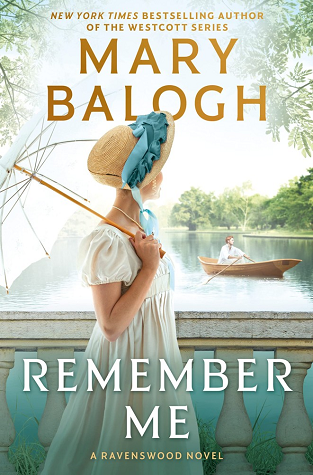 Remember Me (Ravenswood, #2) by Mary Balogh
Remember Me (Ravenswood, #2) by Mary Balogh Format: eARC
Source: supplied by publisher via Edelweiss
Formats available: hardcover, large print, paperback, ebook
Genres: historical fiction, historical romance, regency romance
Series: Ravenswood #2
Pages: 368
Published by Berkley on June 20, 2023
Purchasing Info: Author's Website, Publisher's Website, Amazon, Barnes & Noble, Kobo, Bookshop.org, Better World Books
Goodreads
Can Lady Philippa Ware forgive the man who once shattered all her youthful dreams? Discover the passionate and heartwarming new novel on the redemptive power of love from New York Times bestselling author Mary Balogh.
Philippa, elder daughter of the Earl of Stratton, grew up eagerly anticipating a glittering debut and a brilliant marriage. Then her brother caught their father out in a clandestine affair and denounced him publicly. The whole family was disgraced, and Philippa's hopes grew dim, then were fully shattered when she overheard the dashing, handsome Marquess of Roath viciously insult her upon learning of her father's identity. Only years later does Philippa find the courage to go to London at last to meet the ton. She is an instant success and enjoys a close friendship with the granddaughter of a duke. Only one man can spoil everything for her, but surely he will not be in London this year.
The Duke of Wilby is nearing death and has tasked his grandson and heir, Lucas Arden, Marquess of Roath, with marrying and producing a son before it is too late. Lucas, who usually shuns London, goes there early in the Season in the hope of finding an eligible bride before his grandparents come and find one for him. He is instantly attracted to his sister's new friend, until that young lady asks a simple question: "Remember me?" And suddenly he does remember her, as well as the reason why the daughter of the Earl of Stratton is the one woman he can never marry--even if his heart tells him she is the only woman he wants.
Unfortunately for Philippa and Lucas, the autocratic duke and his duchess have other ideas and believe them to be perfect for each other. They will simply not take no for an answer. Telling Philippa the full truth is the hardest thing Lucas has ever faced, and the discovery of it will change them both before they discover the healing power of love.
My Review:
The elderly Duke of Wilby may be the most aptly titled character to ever grace the pages of a Regency romance. Because his will has been done, generally to his satisfaction, for most of his long life, and he fully intends that his will be done one last time before the end that his doctor has predicted comes to pass.
On the whole, Wilby is a rather benevolent dictator when it comes to his family, but he seems to have never been faced with an opposition implacable enough to stand against him that couldn’t be overcome. With the possible exceptions of time, old age and death. Although even there he’s negotiating for better terms – or at least terms of his own choosing.
He has only one surviving heir, his grandson Lucas. Lucas’ father died of recklessness years before, there was no spare, the old Duke had no brothers and the next heir is a cousin that frankly neither he nor Lucas believe is worthy of the title. Someone they know will have no care for the many female members of the family who will be left to his dubious mercy if Lucas dies before he has his own ‘heir and a spare’.
The elderly Duke – and his redoubtable Duchess – are determined that Lucas, now twenty six, will spend the coming Season in London, scouring the Marriage Mart for a bride they all find suitable – whether he wills it or not. For that matter, whether SHE wills it or not as well.
The seemingly immovable object standing in the way of Wilby’s plan is Lady Philippa Stratton, daughter of the late Earl of Stratton. Her brother now holds the title. Pippa is twenty two, wealthy in her own right, and her brother is no longer her guardian. She can do as she pleases when it comes to the Season and the Marriage Mart.
She does not please to marry Lucas Arden. Because once upon a time, just a few years previously when they were both a bit younger and a whole lot less cognizant of the effect a few careless words might have on the people around them, Pippa heard Lucas refer to her as ‘spoiled goods’. Not for any action of hers, but for her father’s indiscreet, utterly scandalous, behavior.
 A scandal that touched Lucas every bit as closely as it did Pippa. But eavesdroppers seldom hear anything to their credit, and that was the case here. He owes her an explanation AND an abject apology. But it is water very much under the bridge at this point. That she let his words blight the next four years of her life isn’t ALL on him. Although she still doesn’t owe him the time of day.
A scandal that touched Lucas every bit as closely as it did Pippa. But eavesdroppers seldom hear anything to their credit, and that was the case here. He owes her an explanation AND an abject apology. But it is water very much under the bridge at this point. That she let his words blight the next four years of her life isn’t ALL on him. Although she still doesn’t owe him the time of day.
But the Duke of Wilby is certain that Pippa and Lucas are perfect for each other. And he’ll move heaven, earth and everything in between in order to get them to see it too. Before his negotiations with his Maker come due.
Escape Rating C+: I had intended to read the third book in the Ravenswood series, Always Remember, this week but when I realized that I’d skipped this second book, Remember Me, I switched things up. I’ll get to Always Remember sometimes in February because it’s still the right month for a LOT of romance.
Howsomever, I ended up with a lot more mixed feelings about Remember Me than I expected after the first book in this series, Remember Love – which I liked rather a lot.
There were a couple of things that kept me from falling quite as hard for this second book in the series, one of which was the sheer proximity to yesterday’s book. Part of the reason I enjoyed A Body at the Séance so much was that I found Mabel Canning’s whole, entire life easy to identify with. She’s not rich, she’s not privileged, she’s a woman making it on her own and her life and times are just close enough that it’s easy to step into her shoes. Possibly except for the murder investigations she keeps falling into but still, she’s someone I’d love to have tea with.
Lady Philippa Ware is certainly a good character, as well as a decent human being, but in comparison with Mabel she’s too rich, too privileged, too beautiful and just too damn perfect to be anything other than a fairy tale princess character – including the title. I liked her, I could see why all the other characters warm to her, but she’s got it so easy in so many ways, in a time and place where so many people did not, that I didn’t love her nearly as much as I did Mabel – or as Lucas and his whole, entire family came to do.
I also need to confess that the conflict in this story, the engine moving the plot forward, the way that the Duke of Wilby in his role as benevolent tyrant pushed so hard to have his will be done, to make all the characters move on his chessboard without ever listening to a word they said about their own lives, is triggering for me in ways I can’t explain. And I fully recognize this is a ‘me’ thing and likely not a ‘you’ thing.
But still, I found myself utterly conflicted between the fact that ‘dammit he was right’ and just how much I wanted someone to push back against him and make it stick that it spoiled the story for me. There are so many ways his pushing and shoving could have and should have gone wrong that I wanted to scream at someone the whole way through.
 Your reading mileage may definitely vary. In fact, I hope it does because I think a LOT of people are going to love this book. I’m just not one of them although I certainly expected to be.
Your reading mileage may definitely vary. In fact, I hope it does because I think a LOT of people are going to love this book. I’m just not one of them although I certainly expected to be.
Which leads me back around to the NEXT book in this series, the one I thought I’d be reading this week, Always Remember. I’m looking forward to that story because Lucas’ sister, Lady Jennifer Arden, has faced hardships and tragedies in spite of her wealth and status, and it looks like she’ll be finding a life-partner in spite of all the predictions that a woman with a fortune who can’t walk and can only get around in a push chair has no chance to marry anyone who will not be more invested in her fortune than herself. I have high hopes that Pippa’s older half brother Ben, the child of one of her father’s many, many scandals, will prove everyone wrong. Because Jenny deserves her own happy ever after and I’m looking forward to seeing her get it!

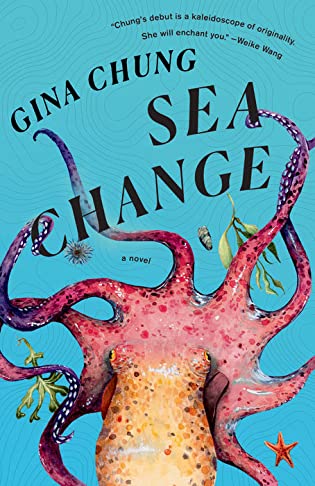 Sea Change by
Sea Change by 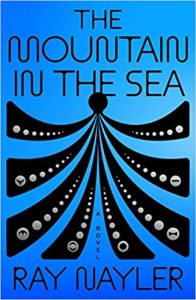 (It’s not specified exactly where or what this is, but it seems likely to be a combination of or an intrusion into the Bering Sea by the existing Polar Vortex. I could be completely off-base. One of the frustrating things about Sea Change is that it seems to be set in a near-future of our current world, but just how near or far is confusingly obscured. There are people who remember the song Hotel California from their own youth – as I do – but climate change is considerably further amuck than current conditions and a colony spaceship to MARS lifts off during the course of the story. The near-ish future setting of
(It’s not specified exactly where or what this is, but it seems likely to be a combination of or an intrusion into the Bering Sea by the existing Polar Vortex. I could be completely off-base. One of the frustrating things about Sea Change is that it seems to be set in a near-future of our current world, but just how near or far is confusingly obscured. There are people who remember the song Hotel California from their own youth – as I do – but climate change is considerably further amuck than current conditions and a colony spaceship to MARS lifts off during the course of the story. The near-ish future setting of 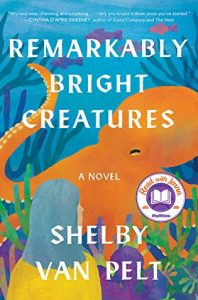 Escape Rating C+: For this reader, Sea Change was just ‘Too much Ro and not enough Lo’ as I said near the top. I hoped this would tilt more to the magical realism side of the equation, so that Dolores could be more of a character. Because Marcellus was so much of a character,
Escape Rating C+: For this reader, Sea Change was just ‘Too much Ro and not enough Lo’ as I said near the top. I hoped this would tilt more to the magical realism side of the equation, so that Dolores could be more of a character. Because Marcellus was so much of a character, 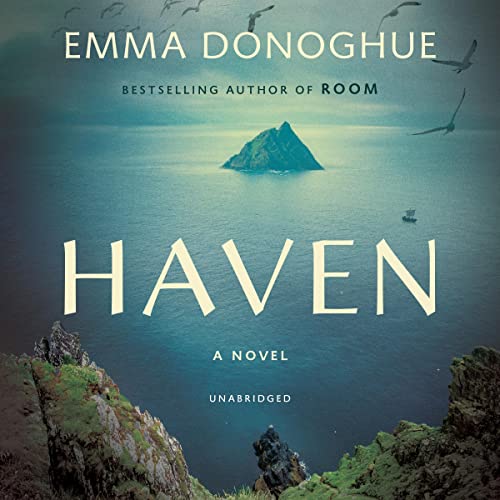 Haven by
Haven by 
 And if someone is interested in historical fiction about this time period in Ireland in general and the Catholic Church in Ireland at this period in particular, I’d recommend the
And if someone is interested in historical fiction about this time period in Ireland in general and the Catholic Church in Ireland at this period in particular, I’d recommend the 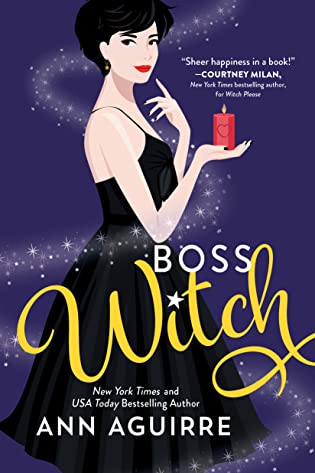 Boss Witch (Fix-It Witches #2) by
Boss Witch (Fix-It Witches #2) by 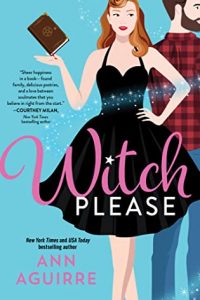 Boss Witch picks up in the middle of
Boss Witch picks up in the middle of 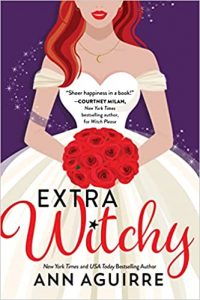 But on my third hand – the one belonging to my familiar, perhaps – resolving the witch hunter danger at the end of this book, does make the thought of the third book in the series,
But on my third hand – the one belonging to my familiar, perhaps – resolving the witch hunter danger at the end of this book, does make the thought of the third book in the series, 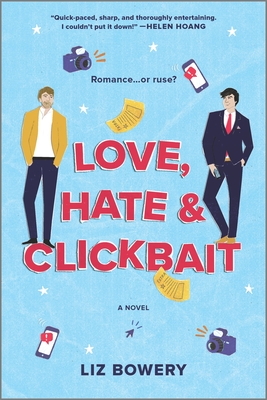 Love, Hate & Clickbait by
Love, Hate & Clickbait by 
 An Impossible Promise: A Novel by
An Impossible Promise: A Novel by  Escape Rating C+: As I said at the top, I am hooked on this story, and eaten up with speculation about how the whole thing is finally going to be worked out. But, but, but there are a whole lot of things about this story that drive me crazy because they don’t make sense – or at least they don’t make sense without a whole lot more explication than we have so far.
Escape Rating C+: As I said at the top, I am hooked on this story, and eaten up with speculation about how the whole thing is finally going to be worked out. But, but, but there are a whole lot of things about this story that drive me crazy because they don’t make sense – or at least they don’t make sense without a whole lot more explication than we have so far.
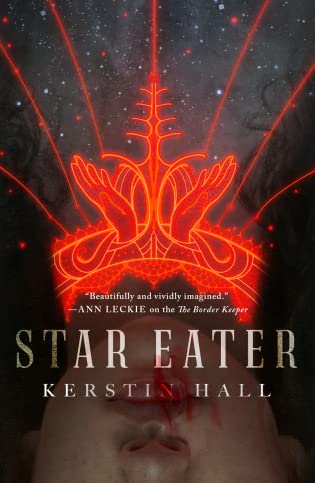 Star Eater by
Star Eater by  Escape Rating C+: This story is a hot mess and so is its protagonist Elfreda Raughn. And the story is not nearly as high-falutin’ or well-put together as the blurb would lead one to believe.
Escape Rating C+: This story is a hot mess and so is its protagonist Elfreda Raughn. And the story is not nearly as high-falutin’ or well-put together as the blurb would lead one to believe.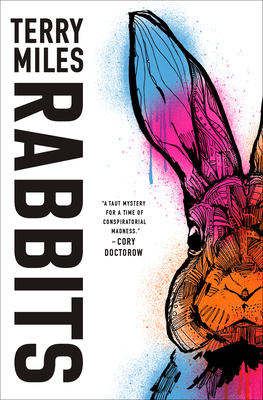 Rabbits by
Rabbits by 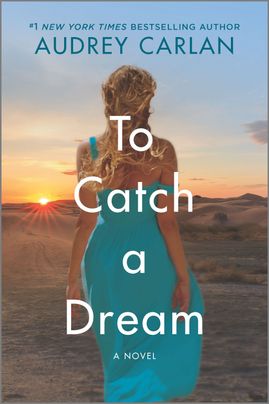 To Catch a Dream by
To Catch a Dream by  Suda Kaye returned to Colorado in the first book in the
Suda Kaye returned to Colorado in the first book in the 
 Dune: The Duke of Caladan by
Dune: The Duke of Caladan by 